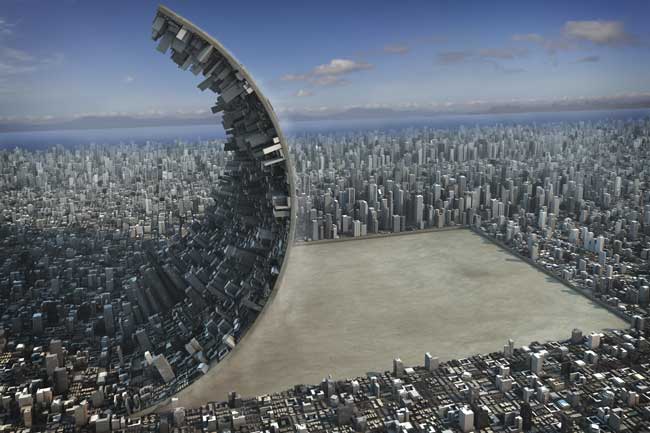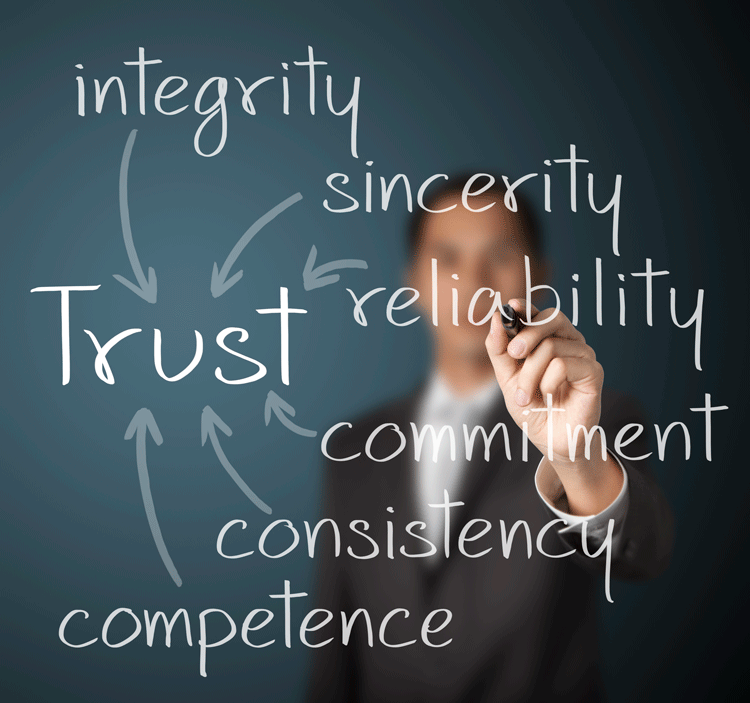Tag: Development Partnerships
Is Your City Really Moving Toward Economic Development?
Posted by Retail Attractions Blog on November 26, 2018 in Blog | No Comments
If I asked the question, “Does your city really want economic development?” you’d probably answer “yes.” It might even seem like a silly question. Doesn’t every city want to grow and develop their economy?
While most cities say they’d love to increase their revenue and develop their economy, in practice that doesn’t always seem to be the case. Cities often have trouble getting past the status quo. Here are three questions that can help you figure out why, and also help you start really moving toward economic development.

Why Resist Change?
In some cases, cities face problems that certain groups find it more profitable to complain about than to fix. To quote Aaron M. Renn, a Senior Fellow at the Manhattan Institute, “economic struggle can be a cultural unifier in a community that people tacitly want to hold onto in order to preserve civic cohesion.”
Similarly, in The Economy of Cities, Jane Jacobs says, “Economic development, whenever and wherever it occurs, is profoundly subversive of the status quo.” When people are benefiting from the status quo, there will be groups that resist change even when that change could benefit the city as a whole.
What Happened?
There are a whole host of reasons a situation like this can develop. It often happens without anyone realizing what’s going on. In many cases, you’re just too close to the situation to realize why certain groups are resisting change.
Here’s just one example. If a city were to experience economic growth, there’s a good chance outside parties will become involved. One case of this is when cities enter a public-private partnership to finance retail development. But when you bring in outside players, the people currently in power can find some of their influence diluted. In this situation, keeping with the status quo seems like it would be in their best interests.
How Can You Get Past This?
Because resistance to economic development has so many nuances and is so hard for cities to recognize, bringing in an expert can be a big help. Consulting with an economic development expert is a great way for your city to get a fresh perspective on what could be blocking economic development. Contact Retail Attractions today to see how we can help.
If you liked this article, be sure to pick up a copy of my new book The Devil’s In the Details: Things that Challenge City Government and the Language of Development. It addresses glaring problems and issues that destroy foundational economic development efforts for cities. This book also provides guidelines for how to overcome those issues. Click here to order.
Where Do You Get Funding For Economic Development In Your City?
Posted by Retail Attractions Blog on October 21, 2018 in Blog | No Comments
We all know economic development would be good for your city, but how are you going to pay for it? Finding the money to get started with growth and development is one of the biggest challenges many cities face.
Funding for economic development in your city can come from several different sources, and you might have access to more than one. Here are four funding sources that you should look into for financing development in your city.

Public-Private Partnerships
Public-private partnerships are one of the newest, and most popular, ways to fund economic development in your city. These partnerships let your city (the “public” side) and a private or corporate group share both the risks and rewards of economic development. You can get a lot more information about how to create successful Public-Private partnerships on my blog, so click here to read those articles.
City Funding
Funding for economic development is usually part of a city’s budget. It’s normal to set aside part of the general fund for things like business surveys, site visits, marketing campaigns, and redevelopment efforts. The city can also supply indirect funding by offering incentives to groups looking to build in your city and encouraging public-private partnerships.
State Funding
Many states have programs to support economic development. It’s important for your city officials to familiarize themselves with what sort of funding and incentives are available in your state. In some cases, states supply funds directly to a city. The state can also incentivize businesses to choose locations within the state for their next expansion site.
Federal Funding
Federal programs to support local economic development are available through several agencies. These include the Economic Development Administration (EDA), the Small Business Administration (SBA), and the Department of Housing and Urban Development (HUD). They can offer funding directly to cities and also provide tax breaks for companies building in your city.
Finding The Money
Retail and economic development is always a challenge. And it’s especially daunting when you try to tackle it on your own. Retail Attractions is here to help. We offer consulting services that will assist with all stages of economic development, including locating initial funding. Click here to contact us today and get started.
If you liked this article, be sure to pick up a copy of my new book The Devil’s In the Details: Things that Challenge City Government and the Language of Development. It addresses glaring problems and issues that destroy foundational economic development efforts for cities. It also provides guidelines for how to overcome those issues. You can order this book by clicking here.
Building Trust As A Core Value Is Key To Healthy Public/Private Partnerships
Posted by Retail Attractions Blog on September 5, 2018 in Blog | No Comments
A public/private partnership might be just what your city needs to catalyze economic development and growth. These partnerships offer a win-win situation for both parties. The public party gets funding for public infrastructure and retail growth, while the private party gets incentives that let them expand into a new market. If everything goes as planned, both parties get substantial benefits from the arrangement.
When you’re involved in setting up a public/private partnership, building trust between the two parties is essential. Without trust as a core value it will be very difficult to work together and achieve the goals of your partnership. Here are a few tips for building a foundation of trust that will make your partnership work.

Honest Communication
Opening up communication channels between the public and private partners is a key first-step toward trust. Good communication in the early stages of negotiation lays the groundwork for a successful partnership. Also, having good communication habits in place will help keep the partnership on-track in the future.
Don’t hide things from your partner. Problems shared early on can be handled together, building trust in the partner’s ability to be honest and work-through difficulties. Communication between the partners should also include discussing goals, exchanging ideas, and finding common ground.
Follow-Through On Commitments
Parties start building trust in each other’s interests, qualifications, and diligence early in the selection process. Finding an appropriate partner can be a challenge. Each side will be giving the other partner a chance to demonstrate their qualifications and commitment and then seeing whether or not they follow through with what they promise.
No one is going to trust a potential partner if they don’t follow-through on their commitments. Once the partners clearly communicate what they expect from the other, both have to live up to those expectations. That includes showing up on time for scheduled meetings, completing agreed upon tasks, and continuing to work toward mutual success.
Cultivate Understanding
Communication and commitment stay vital to the success of the partnership after papers are signed and development starts. As you continue building connection between partners, you should be developing a relationship based on trust as well as shared goals. Both parties need to agree upon performance measurements and hold themselves accountable to those measurements.
Each partner needs to act honestly and in good faith as the partnership continues. And they should be able to trust that the other party is doing the same. It’s vital that both sides continue working to understand the other’s goals and perspectives.
Don’t Forget Stakeholders
Building trust in a public/private partnership isn’t just about the relationship between the two partners. You also want other stakeholders and the public to trust the partnership has their best interests as a core goal. To do this, you’ll need a high degree of transparency and a commitment to present realistic expectations. Exaggerating or misrepresenting the project’s goals might increase support at first,but it will back-fire. Be sure you can follow-through on promised goals.
Whether you’re just getting started looking for a public/private partnership or you’re ready to set one up, Retail Attractions can help. We have years of experience working with both public and private partners and we have the skills needed to help your partnership become a successful one. Contact us today to learn more about how we can help. If you need work with public-private partnerships, you’ll probably also like my book, City on a Hill. Click here to get a copy.
Early and Frequent Communication Is Key To Developing Public/Private Partnerships
Posted by Retail Attractions Blog on June 27, 2018 in Blog | No Comments
If you’re going to get a public-private partnership off to a good start, communication is essential. The more you can open up and use communication channels between each partner the more successful your partnership will be. Good communication lays the groundwork for a successful partnership, and building effective communication habits will also help keep the partnership on-track in the future.

Communication Between Partners
Public-private partnerships are complex things which often involve large groups of people. Without a plan for achieving effective communication within this partnership, the partnership can crumble. Because of this, communication is key to getting both parties working as a team.
Internal communications should include shared partnership objectives. Partners should discuss their goals and find common ground that will help them develop and agree on ways to reach those goals. Good communication allows the exchange of ideas, information, and needs that is required to support effective decision making within the partnership.
Communication Outside The Partnership
Both public and private partners should also prepare for communicating about the partnership to those outside it. Good communication within the partnership is an essential first-step for this. You don’t want different parties disagreeing with each other publicly. Make sure you’re keeping all spokespersons for the partnership up-to-date on what’s going on so they can deliver a consistent message.
External communication with stakeholders, investors, public officials, the local community, and the media isn’t something you can afford to overlook. When your partnership cultivates a transparent, honest approach through community outreach and communication, you’re taking a big step toward ensuring continued support for the project. Just don’t make the mistake of over-communicating. For example, if you announce a plan to purchase land before the deal is finalized it could drive-up land prices in that area.
Get Help With Your Communications
Because good communication is so important to the success of public-private partnerships, it’s not something you want to leave to chance. A trusted third-party consultant like Retail Attractions can help. We have extensive experience working with both public and private parties. And we know how to foster good communication within a public-private partnership.
A Retail Consultant helps you navigate the confusing world of retail development effectively. We can help with strategic planning, site selection, demographics analysis, and so much more. And since we’ll be sharing the same information with both the public and private partner, that’ll help with communication.
If you need to work with public-private partnerships, you’ll probably like my book, City on a Hill. It’s full of helpful information for everyone working on retail development in a community.
Answering Questions About Leadership In Public/Private Partnerships
Posted by Retail Attractions Blog on May 23, 2018 in Blog | No Comments
One of the more popular ways to start a new retail development project is to enter into a public/private partnership. This type of partnership exists between a city government (the public party) and a retailer or developer (the private party). Public/private partnerships are built on the idea of shared control between private parties and city governments as they work together toward a retail development goal.
In order to achieve their goals, public/private partnerships need consistent, coordinated leadership. Whether it’s an individual or a small group, good leadership in a public/private partnership is essential to keeping everything moving forward as planned.

What does a leader do?
In a public/private partnership, the leader is responsible for defining clear goals and keeping the project moving toward those goals. They’ll help bring the right parties to the table, act as the bridge between private project managers and political leaders, and give other stakeholders a forum to share their thoughts on the project. They’re also working to coordinate the development process and keep everyone on-point.
The most effective leadership for public/private partnership isn’t a top-down approach where the leader’s just giving orders. A project like this needs a leader who facilitates and inspires others to keep moving toward shared goals. The leader acts as a point person, getting everyone involved in the project together and then following through with them until the project is completed.
Where do you find public/private leaders?
You’ll need to find someone that both parties agree on as the leader. The last thing you want is for a leadership choice to cause fighting between the two groups. Keeping with the idea of sharing control, it might be a good idea to appoint one representative from each group. Then they can jointly act as project leaders.
You’ll also want to plan for the possibility that leadership could change during the course of the partnership. Many political leaders, for example, are replaced after a 2- or 4-year term. You’ll need a plan for transcending political and administrative changes. That’ll help ensure the new leaders have the same commitment and goals as before so the project can keep moving forward without unnecessary restructuring.
How do you lay the groundwork for effective leadership?
Even the best leader can’t do much good if the groundwork for your public/private partnership is shaky. Take the time early on in the process to prepare for public/private partnerships. Make sure both parties do their homework and establish a solid foundation for good decision making in the partnership.
One of the best things you can do early on in the process of creating a retail development partnership is to bring in a retail expert. Here at Retail Attractions, we have extensive experience helping communities and developers come together in partnerships that benefit both parties. We can help you lay a solid foundation for your retail development goals and we’ll work with leaders to ensure your project reaches completion. Get in touch with us today to get started.
What Does It Mean For All Parties In A Public-Private Partnership To Do Their Homework?
Posted by Retail Attractions Blog on April 25, 2018 in Blog | No Comments
If you want to create a successful public/private partnership in a retail deal, it’s important that both sides do their homework. Whether you’re the public partner or the private partner, you’ll need to make sure that you’re preparing for the deal and that your partner is also doing their part to make sure that this deal goes smoothly.
Preparation before you sign a deal can make a world of difference in whether or not both parties consider the partnership successful. Both partners must be ready to invest in the project long-term and make a commitment to staying informed about their project for as long as the partnership continues.

It’s Not All About The Prep-Work
You’re not going to go into a deal without due-diligence to make sure that it’s a good idea. But do you know it’s also important to keep “doing your homework” as the project progresses?
Both partners need to go into the project with a good understanding of what is involved. And they also need to stay informed throughout their partnership. Whether you’re the public or private partner, you have to commit to staying informed about all the financial, social, and technical aspects of the project.
Sharing Your Information
As you’re gathering information about the project, you don’t want to keep it all to yourself. Both sides of the partnership should be doing their homework and sharing that information with each other. Retail development is a complicated process and good communication is essential to keep things moving forward.
Clarity and transparency should mark every stage of the partnership. And if you bring in a consultant like Retail Attractions, you should also share the work that they do. Your consultant can also help you come up with an information-sharing strategy that works for your partnership.
Communicate About Finances
Before you enter a partnership, you’ll need to do your homework regarding a joint financing plan. You’ll also want to find out about any limitations on your partner. For example, if you’re the private partner and you’re depending on public funding you might need to have a backup plan in case of budget cuts, administration changes, or emergencies that are outside your partner’s control.
Public/private partnerships allow for quite a bit of creativity in funding retail development. Both parties should be researching funding solutions and sharing their ideas with their partner. Once again, this is an area where a retail consultant can be a big help. They have experience working out development deals like yours and can offer suggestions for funding.
If you’re ready to get some help doing your homework when preparing for or while in a public/private partnership, get in touch with us. Retail Attractions has extensive experience working with both public and private partners. And we’re ready to help you develop a retail deal partnership that will benefit both parties.
How To Establish An Effective Decision-Making Process In Public/Private Partnerships
Posted by Retail Attractions Blog on March 18, 2018 in Blog | No Comments
When cities take on economic development projects, they often do so in partnership with the private sector. This has the potential to benefit both parties. However, public/private partnerships are complex things and require plenty of planning to minimize risks and maximize the rewards. Even after you’ve found a private investor for your city to work with, there are still a number of things to sort out before formalizing the partnership.
All the key players in public/private partnerships have to agree on the rules and structure for their partnership early on in the process. You’ll want to formalize how decisions will be made, establish effective policies, and come up with a plan for implementing your partnership goals together.

Define The Plan and Goals
You have to agree on the process you’re going to use to make, implement, and reassess decisions. That’s something to talk about early in the process before something comes up and the different partners have different ideas on how to handle decision making.
It’s important to come up with a formal plan of action that’s agreeable to both the public and private partners. This will include a timeline for implementing the project. You’ll also need milestones that each side can use to assess how well their partner is doing at moving toward the shared goals. Agreeing on your goals and the plan for attaining those goals will give you a framework for making decisions regarding the project.
Assign Roles and Responsibilities
As part of the plan for reaching your partnership goals, you’ll need to define the roles and responsibilities of each partner. Both the private partner and public partner have to agree on their individual roles and responsibilities before moving forward with the project.
You should incorporate a summary document outlining performance standards, clear metrics, and a plan for dispute resolution into the contract you sign as part of a public/private partnership. Documenting which party is responsible for what is a key step in making sure that decisions will be made effectively in your partnership.
Include Checks and Balances
There should be a certain amount of flexibility in a public/private partnership. Things aren’t always going to perfectly smoothly during the development project. You’ll need a system in place that lets you reassess decisions if they’re not working out. Both partners should have the opportunity to check on each other’s progress and propose modifications to the process if things aren’t working out as planned.
Laying the groundwork for a successful public/private partnership is a tricky thing. When you’re working out how to establish a decision-making process that’s going to serve both partners, it’s a good idea to get some professional help. Here at Retail Attractions, we specialize in helping both sides in a retail development deal define their goals, understand their responsibilities, and establish a successful partnership. Contact us today to schedule a consultation.
3 Key Roles Your City Plays In Retail Site Selection
Posted by Retail Attractions Blog on September 15, 2016 in Blog | No Comments
Companies choosing a new location for retail development aren’t the only ones involved in site selection. If you want them to choose your city you have to play a role as well. Developers are looking for proactive cities ready to provide the sort of information and assistance they’re looking for in a successful partnership. You’re their best source for information about the community and local politics, and the only ones who can prove your city knows how to market its attractions.
Local Knowledge Guru
You know more about your community than real estate professionals and site selectors. Your local knowledge isn’t readily available to them and could influence their decision whether or not to build in your city. But unless you make it a point to share this information, they’ll be in the dark.
It’s up to the city to share key info such as unpublicized plans for road widening, infrastructure improvements, residential subdivisions, and other mixed-use commercial deals. Call attention to publicized plans as well, just in case site selectors overlooked that information. You’ll also know about things like local liquor laws and building codes that developers will want to know about.
Political Navigator
Few things are more frustrating for outside investors to navigate than local politics. If there’s political instability in your city, many investors will think the location is too much hassle. Developers see small to mid-size markets as a more risky venture for retail and restaurants, so this affects those markets most.
A united community is highly attractive to potential investors. Developers would much rather work with a city that’s focused and working together than one that’s divided. They need to know they can count on your community to work with them. It’s also easier for them to work in communities that have streamlined the permitting processes and other regulatory requirements.
In-City Marketing Expert
You need to prove to potential investors that your city can make a good first impression. This often begins with the website. Many cities have old websites that are difficult to navigate and cluttered with out-of-date information. You don’t want people researching potential retail development locations to overlook your city because of a negative first impression. Instead, contact us for website consulting, design, development, hosting, and maintenance services tailored to your city’s needs.
The easier you can make it for developers and site selectors to find information about your city’s growth plans, navigate local politics, and market a new development in your community the better. But you still have to catch their eye in the first place. Let Retail Attractions help. We have the contacts within retail and third-party objectivity needed to market your community successfully. Get in touch with us today and we’ll help you grow your city.
Risks and Rewards in Public/Private Partnerships
Posted by Retail Attractions Blog on July 28, 2016 in Blog | No Comments
Every financial venture carries a certain amount of risk. In a public/private partnership for economic development, both sides face some pretty significant risks but the partnership also offers greater rewards than either could reap on their own. To minimize risk and maximize reward, you have to set up the partnership carefully in the beginning stages of planning.

Consider Both Sides
A public/private partnership is more than a straightforward financial deal. Such partnerships are complex, often long-lasting, and carry a high level of risk as well as the promise of significant rewards. When navigating a public/private partnership, both parties have to focus on mutual success.
The public partner can’t just focus on their community’s needs and the private partner can’t just focus on their bottom line. Both have to recognize and acknowledge the needs each party brings to the table, as well as the risks they’re taking on by entering the partnership. When both parties are committed to working together for their common good, they can accomplish goals that wouldn’t be possible apart.
Acknowledge Risks
To deal with conflicts and plan for an uncertain future, both parties need to know what the risks look like. On the public side, one risk is that the partnership will result in conflicts of interest and stir up dissension in the community. The public side may have to deal with land use conflicts, liability impacts, and accusations about the misuse of public funds. They’re also taking a risk that the developer could go out of business or not follow through on their side of the partnership.
On the private side, the largest risks are financial. Development is a time-consuming process, and there’s a risk of running out of funds before the project finishes if there are delays or poor planning. The public partner is also gambling that the project will create long-term value. Another risk is that key changes in public or political leaders could derail the partnership. These sort of risks should be addressed in the planning stages of partnerships.
Reap The Rewards
If you can make a plan to deal with and/or avoid the risks, public/private partnerships result in plentiful rewards on both sides. For the public side of the partnership, success results in greater wealth in the community, improved infrastructure, increased tax revenue, and creation of jobs. For the private side, successful retail development partnerships are financially profitable, establish their market niche, enhance the organization’s reputation, and provide resources to take on new projects.
Every partnership is unique and a one-size-fits-all formula doesn’t apply. When you’re trying to manage risks and work towards mutual success, it helps to have someone on your side who has experience working with public/private partnerships and fostering economic development. Retail Attractions has extensive experience on economic development projects and understands the perspective of communities and developers alike. We tailor our consultation to your unique situation and we’ll work with both public and private parties to get the most out of your partnership.
What Are Retailers Looking For?
Posted by Retail Attractions Blog on June 20, 2016 in Blog | No Comments
One thing we see quite often is that communities marketing themselves for retail development don’t really know what retailers and restaurants are looking for. You might be prepared to “prove” your community is the best place for investment and have data ready, but that’s not the only thing developers are interested in. Knowing what you really need to focus on lets your community stop wasting time on ineffective marketing, and it makes securing a successful retail deal far more likely.
Reliable Data
Understanding a retail investor’s priorities and needs is a key step in forging a successful retail partnership. The first question they need to answer when looking at your community is, “Will we make a profit in this market?” Retail developers need a positive bottom line, and they won’t consider developing a market where it doesn’t look like they can make money.
You will need accurate data to present to potential retail investors, and it has to be in a format that they’ll recognize as reliable. Retail Attractions can help you with defining the trade area around your community, collecting demographic data, producing a market analysis, and presenting it all in a professional format. A third-party analysis shows retailers you take their time and money seriously, which in turn encourages them to take your community seriously.
Community Support
Even when the data indicates your community could be a profitable market, retailers also need to know they can count on your support to move the project forward efficiently. You might not even think about the regulations process when you first start marketing your community, but you can bet developers will be concerned about it. Developers don’t want to partner with a community where red-tape, delays, and fees are the norm when dealing with city administration. Streamline this process as much as possible before making retail development deals.
You can also show support for retail investors by getting infrastructure updates in place. New retail development means your city will need to expand the water and sewage systems, as well as plan for changes in traffic patterns. Showing you have a plan in place to do this is another way to show retailers that your community will support their development efforts.
Market Knowledge
Hiring a consultant who already has contacts within the retail development industry is a huge asset. Retail is a tight-knit community and having a known, respected professional like Rickey Hayes advocating for development in your community can make the difference in whether or not new retail development happens in your city.
Retail Attractions’ consulting services extend beyond just making initial contacts within retail. We’ll also help you put together the right kind of data on your community and take the external and internal steps necessary to prepare for successful retail growth. If you’d like to learn more, contact us to get your questions answered or to schedule a consultation.

